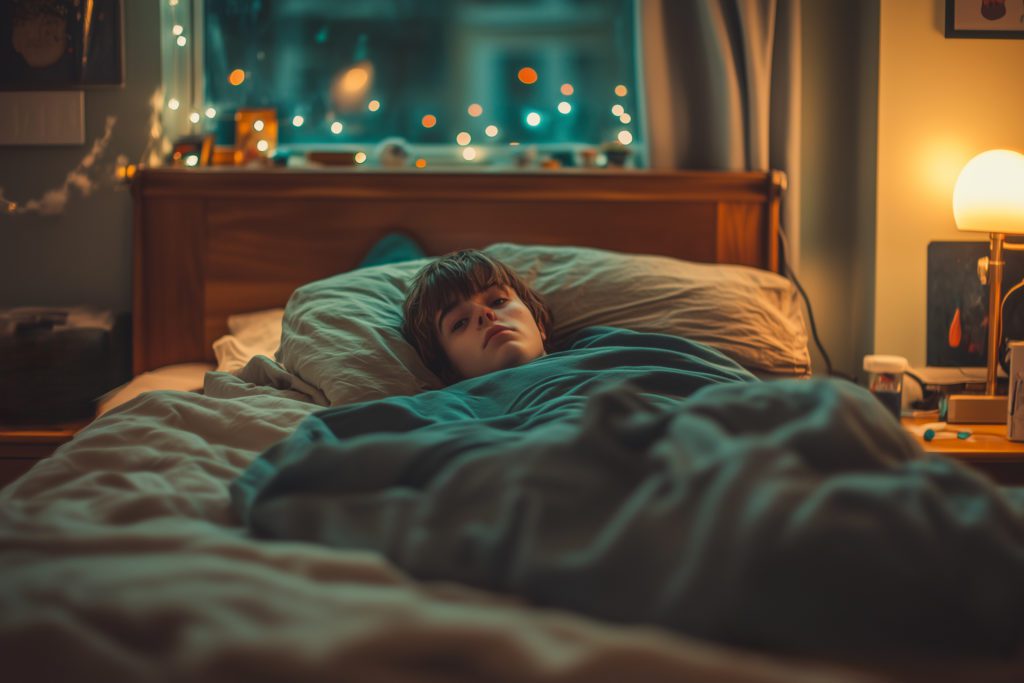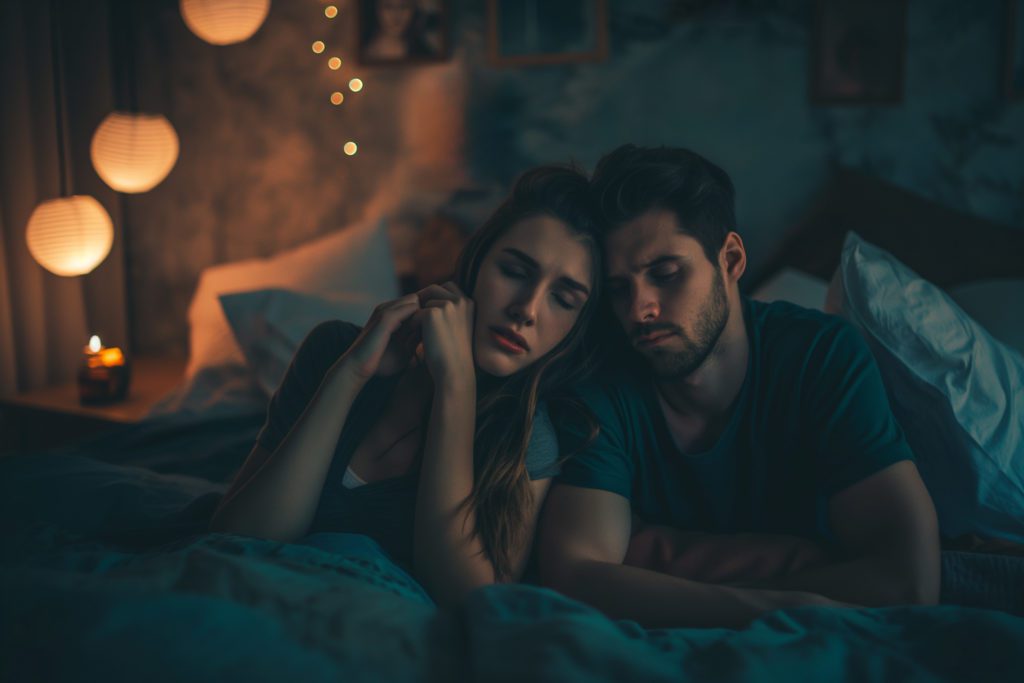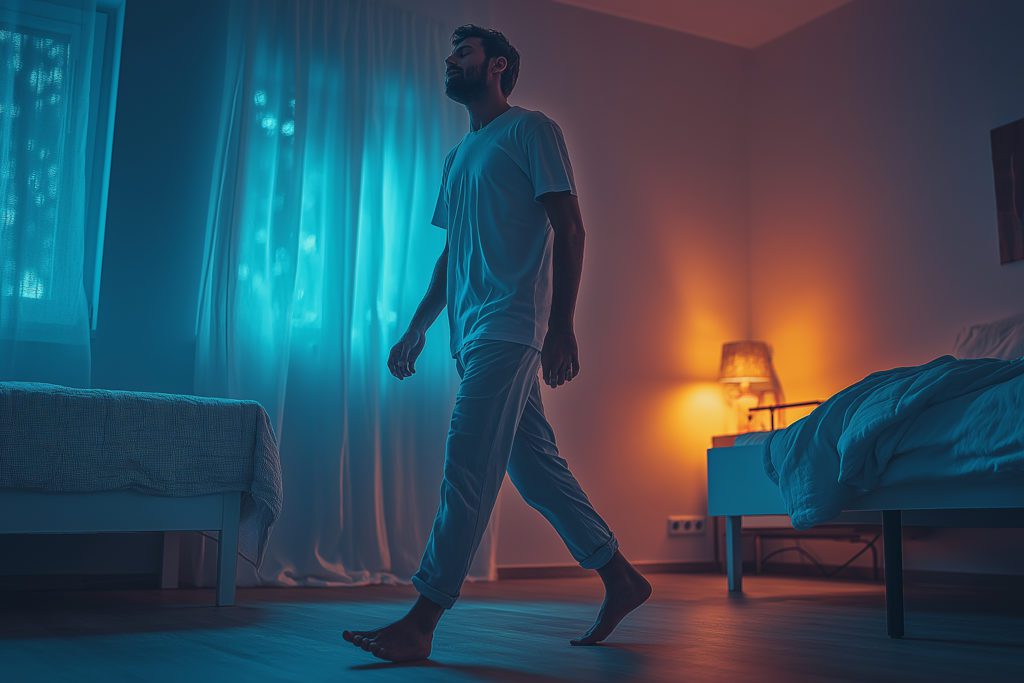
Are ADHD and Sleep Problems Separate Issues?
The relationship between ADHD and sleep problems is complex, often creating a cycle where one exacerbates the other. Read more about its impact.

Living with ADHD presents various challenges, and one of the lesser-discussed but significant issues is the impact on sleep. Whether you're an adult or a child, ADHD can complicate the process of winding down and getting a good night's rest. You're not alone if you've found yourself wondering, "Are ADHD and sleep problems separate issues?" In a nutshell, they're not.
The relationship between ADHD and sleep problems is a bit like a dog chasing its tail – one issue often fuels the other in a never-ending cycle. But don't lose hope! Understanding this connection is the first step toward breaking the cycle and helping you get the rest you need.
In this article, we'll discuss how ADHD affects sleep, how sleep problems can worsen ADHD symptoms, and what you can do to help you snooze peacefully.
The Basics of ADHD
ADHD, or Attention-Deficit/Hyperactivity Disorder, is a neurodevelopmental disorder characterized by inattention, hyperactivity, and impulsivity.
People with ADHD often find it challenging to control their impulses. This means they might struggle with organizing tasks, maintaining focus, or acting without considering the consequences.
It's not that they want to be disruptive or inattentive – their brains are wired differently, making it harder to filter out distractions and regulate their behavior.
ADHD can affect various aspects of life, from professional performance to social interactions. And when it comes to bedtime, falling asleep can become challenging. Understanding these fundamental aspects of ADHD helps us see why sleep problems are so prevalent among people with this condition.
Common Sleep Problems in People With ADHD
When it's time for bed, people with ADHD don't just turn off like a switch. They might experience a range of sleep problems that can leave parents feeling like they're in a battle. Here are some of the most common issues:
Insomnia
Insomnia is a frequent complaint. Their minds are racing with a hundred thoughts a minute.
Restless Sleep
Even when they do fall asleep, it's often not the peaceful, restorative kind. Tossing and turning, frequent awakenings, and restlessness can turn a good night's sleep into a fragmented mess.
Difficulty Waking Up
Ironically, despite having trouble falling asleep, many people with ADHD struggle to wake up in the morning.
Studies have shown that sleep problems are significantly more common in people with ADHD compared to their peers. One study found that up to 70% of children with ADHD experience some form of sleep disturbance. These sleep issues aren't just a minor inconvenience; they can have a substantial impact on daily functioning, mood, and overall well-being.
The Vicious Cycle: How Sleep Problems Worsen ADHD Symptoms?
The other side of the coin is how sleep problems can worsen ADHD symptoms, creating a feedback loop. Lack of sleep can turn even the most patient saint into a grumpy troll, and for people with ADHD, the effects are even more pronounced.
When people with ADHD don’t get enough sleep, their ability to regulate their behavior and emotions takes a nosedive. They become more impulsive, making it harder to sit still and focus. The inattention that’s already a hallmark of ADHD becomes even more pronounced.
Mood swings are another unpleasant side effect. A tired brain is a cranky brain, and sleep-deprived people with ADHD might find themselves experiencing intense emotions more frequently. This can lead to meltdowns, irritability, and a general sense of being overwhelmed by their feelings.
Moreover, cognitive functions like memory, problem-solving, and decision-making take a hit. This means struggling even more with tasks that require mental effort, leading to frustration and a sense of failure.
The vicious cycle continues as these worsened ADHD symptoms can lead to more anxiety and stress, making it even harder to sleep the next night. It’s a tough loop to break, but understanding this cycle is the first step in finding solutions to help manage ADHD and improve sleep.
Strategies for Managing Sleep Problems when dealing with ADHD
Breaking the cycle of ADHD and sleep problems may seem difficult, but it’s possible with the right strategies. Here are some practical tips to help individuals with ADHD get the rest they need:
Establish a Bedtime Routine
A good bedtime routine can signal to your brain that it’s time to wind down. This might include activities like a warm bath, reading a book, or listening to calming music. Think of it as gradually turning down the volume on the day.
Create a Sleep-Friendly Environment
Make the bedroom a sanctuary for sleep. This means keeping it cool, dark, and quiet. You might also want to invest in a comfortable mattress and pillows.
Limit Screen Time Before Bed
Screens emit blue light that can interfere with the production of melatonin, the hormone that regulates sleep. Unplug at least an hour before bed. Swap out TV and video games for more relaxing activities.
Physical Activity
Ensure you get plenty of physical activity during the day. Exercise can help burn off excess energy and make it easier to fall asleep at night. Just make sure it’s not too close to bedtime, or you’ll have the opposite effect.
Healthy Diet
Avoid sugary and caffeinated foods and drinks, especially in the evening. A balanced diet can help regulate energy levels and improve sleep quality.
The intertwined challenges of ADHD and sleep problems can feel like a never-ending obstacle course, but with the right strategies and support, it's possible to break the cycle. Understanding how ADHD affects sleep and vice versa is the first step toward helping you achieve restful nights and better days.
Additionally, consider using technology to improve sleep hygiene. Sleep-tracking apps like Pillow can help monitor sleep patterns and make necessary adjustments for quality rest.

Written by
Dr Aqsa
As a Medical Doctor, Dr Aqsa, uses her knowledge to craft complex medical information that is understandable to the general public. For years, she has tried to improve health literacy and empower readers with valuable health knowledge through her articles, blog posts, and educational materials.
Download Pillow
Get help
Press & News
Legal
Connect
X (Twitter)
Company
Copyright © Neybox Digital Ltd.



